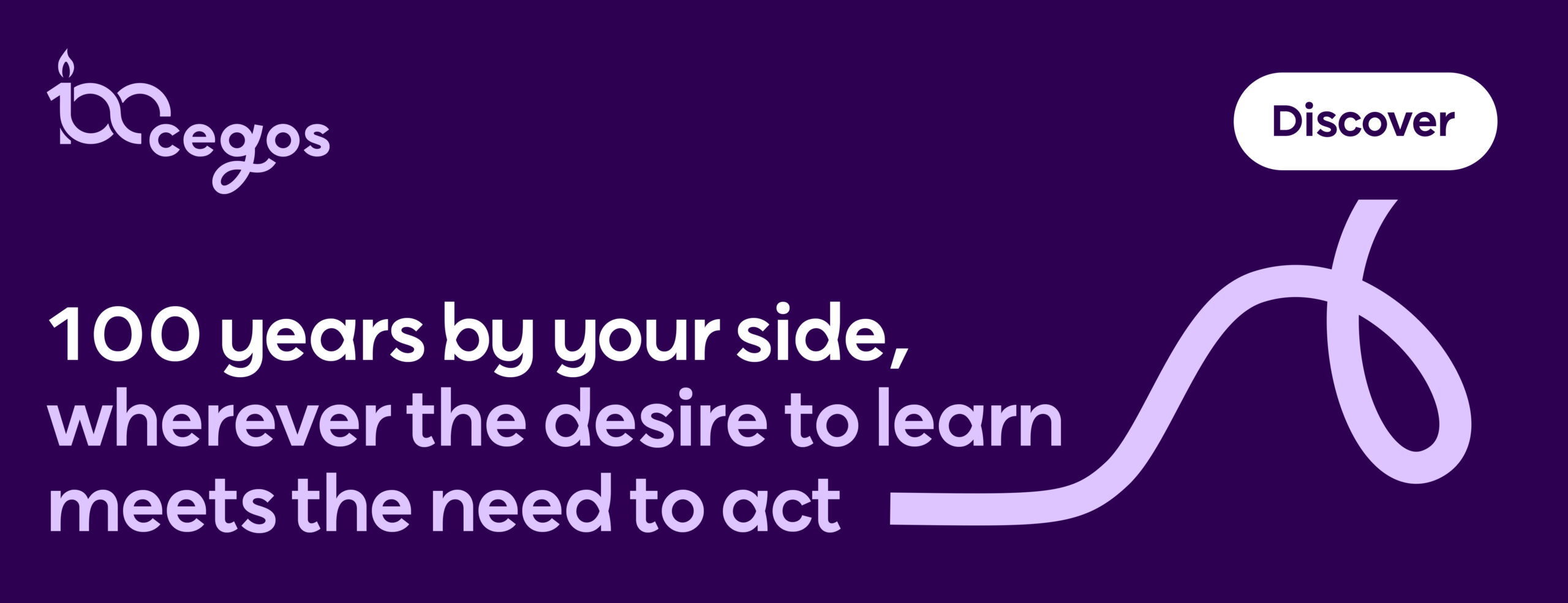
The 21st Century Skills are currently on everyone's lips. In this article, we wish to look at the skills that seem to be more important than ever in the 21st century and what sets them apart. We will then classify these skills in the context of digital learning and show to what extent they can be mapped in training-learning settings.
The 21st century skills are becoming increasingly important in the field of further training? In short, they encompass a set of competencies and skills that people living and working in the 21st century need in order to cope with the (working) world and its challenges and to be successful in it.
The so-called 4 Cs are particularly well known: Creativity, Critical Thinking, Communication and Collaboration. These are particularly relevant in the context of learning and further training, which is why this will be our first part.

Creativity
Creativity is an important asset in today's world. It is more in demand than ever and especially in times of increasingly digital formats and AI as a human skill, cannot be replaced by robots. It is important to be able to change perspectives and thus break new ground. Creativity also goes hand in hand with the next point.
Critical thinking
Critical thinking is characterised by the fact that complex systems and relationships can be analysed and uncovered, that things are questioned, new hypotheses are set up, but also refuted, and new paths and possibilities can be discovered. This ability is particularly important today, as it is becoming increasingly difficult to filter out the quintessence from the daily flood of information, to question it critically and form an opinion.
Communication ability
Good communication can often be crucial to success and has many facets. It ranges from active listening to asking specific questions, negotiating, leading conversations, communication and conflict resolution. It is the basis for every form of successful cooperation, which already leads to the next point.
Collaboration
Collaboration is also a crucial element. Today's world is based in many parts on teamwork, so an understanding of group dynamics, team development and building has become a core skill. Being able to work well with others is therefore an indispensable skill. Indeed, collaboration has changed and has many facets. It ranges from face-to-face events and hybrid meetings to pure remote work. Teams must be able to collaborate well in all constellations.

The 4 Cs skills and learning
We will now reposition these 4 Cs in the context of training and learning. How can we empower learners and prepare them to face tomorrow's challenges? Training success is no longer about reproducing content-related knowledge, but about drawing conclusions from this knowledge and applying them to new situations.
What we learn, how we are taught, changes. This has an impact on all areas in which training and learning takes place.
The 4 Cs as a guide to training and learning
The 4 Cs show what continuing training is primarily about today: the focus is on ways of thinking that include creative and critical approaches to problem solving and decision-making (Creativity & Critical Thinking). It is also about ways of working, including communication and collaboration (Communication & Collaboration) and the tools required to do so. The ability to recognise and exploit the potential of new technologies or even to avert their risks are examples of this. And last but not least, the training context is about the ability to live actively and engaged in a complex world. The learners determine what and how they want to learn and this shapes the role of pedagogy. Learners must be empowered to learn independently, to share and connect their knowledge. This requires open-mindedness, making connections between ideas that previously didn't seem connected and learning about knowledge from other fields. Networked training and learning is therefore necessary in order to be successful in today's working world. Process and solution-oriented knowledge transfer is required here. Trainers and learners should enter a connection that enables cooperation and mutual exchange. Process and solution-oriented knowledge transfer is required here. Trainers and learners should enter a connection that enables cooperation and mutual exchange. Process and solution-oriented knowledge transfer is required here. Trainers and learners should enter into a connection that enables cooperation and mutual exchange.
The world (of learning) is changing
We are witnessing a transition from a world where knowledge is stored but not used and therefore rapidly depreciates in value, to a world where knowledge is stimulated and enriched through the power of communication and constant collaboration. Thus, it is an important to be able to filter, evaluate and interpret the relevant content from the flood of information that prevails today. "Which source is the information based on?", "Is this source trustworthy?".
Those who adapt quickly and are open to change will be successful. The pedagogical issue is to help take on that challenge and help adapt and learn in this agile world. The ability to deal with this complexity must be developed in order to navigate. It is therefore important for trainers and learners to deal with 21st Century Skills, because these are of great relevance today.
Should you want to explore this project further, a detailed article on the 21st Century Skills and their importance for training-learning settings can be found here.
What is particularly important to you when it comes to training and learning? Let us know in the comments below.
This post was originally writer by Kathrin Fiala, Digital Learning Author at Integrata Cegos. Should you wish to read the original post, you’ll find it here.










